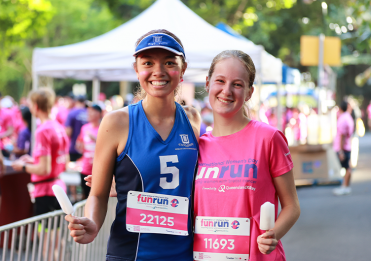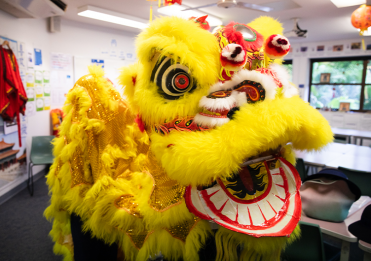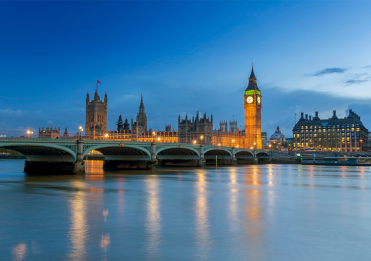Before I begin today, I would like to acknowledge the traditional custodians of the land, the Jagera and Turrbal people—past, present and emerging.
Good morning Ms Euler, distinguished guests, staff and girls.
I grew up in Townsville, North Queensland. It is a small town known for its humidity, the beloved Cowboys football team and a large army base that resides on the outskirts of town. When you think about Australia and Australian identity my hometown manages to capture almost all of the stereotypes. It is the picture perfect place for tourism and encapsulates our identity through its sandy beaches and relaxed vibes. This is where I first shaped my identity and while it might be a world away from your identity here, I hope you can see some parallels.
As a child, I never thought too much about my cultural identity. I proudly sang the national anthem at school and I wore green and gold every single day of the 2000 Sydney Olympics. I knew I was Australian but never asked what that meant—I was because I was. I knew about Australia but I was not overly connected to it.
Although being a North Queenslander, I did always feel and hear about being ‘Australian’ when a cyclone would rip through the region. I am sure you have seen it on the news; when houses were damaged, local facilities trashed by winds, trees torn out of the ground, the community emerged. People would be there to help cut down the tree that fell through your roof, to provide sand bags to stop flooding and canned food when the power was out. The community arrived when you needed them.
My dad, a true blue ‘okker’ stereotype, would remind me that in times of need, it would be ‘un-Australian’ not to help out. As a young girl, I felt a great sense of pride for something I knew very little about. You might have felt the same, or you might be feeling it now. This is the elusive quality of the Australian identity.
Fast forward to 2014, I was offered a job to travel Queensland for six months and visit 54 schools. I travelled to towns that most Australians could barely find on a map and I met people from all walks of life. I spent countless hours of flying in big and small planes, driving four wheel drives and hatch- backs on highways and dirt roads, catching ferries to islands that had communities whose population were one tenth the size of our Girls Grammar community but allowed me the privilege of seeing just how many different versions of Australia there are.
This led me to that discovery I mentioned earlier. On my travels, I was fortunate enough to meet an Indigenous elder on Mornington Island, a small island in the Gulf of Carpentaria. He said to me, as we packed our gear to leave, ‘Emma, who are your people?’ I asked him what he meant and he said, ‘Your people, your mob, who are your people?’ I corrected him straight away and said ‘I’m sorry, but I am not indigenous, I am well….’ but fell short of the words to correct him. To be honest, I did not really know ‘what’ I was. He smiled and said ‘It’s in your eyes. When you get home, talk to your father and mother. Look through your family tree. You are indigenous. I know it.’
At the airport that night, I had some time to myself and reflected on a conversation that I had with an older cousin some years earlier. She had had a similar experience to mine, meeting an elder while studying social work at university in Sydney. I had heard some things about my Grandfather having dark skin but no reference to any indigenous heritage and I did not pursue it at that time.
A year later I connected with my father’s long lost cousin on Facebook. One of the first questions I asked her was about our purported indigenous heritage. She confirmed our great, great grandmother, was indigenous. I was shocked. It took me 25 years to know this about myself.
It made me think about who I was, and what it meant to be connected to aboriginal culture. I did not share the dark skin like my aboriginal grandmother or know the history, the stories, like my great, great grandmother. Did that mean I am indigenous or not? Does this make me more or less Australian? A strange set of questions to be asking myself as an adult.
Fast forward to 2019 and here I am with the same questions about the Australian identity. In fact, there have been a number of studies carried out to suggest ‘a single, unified definition of what it is to be Australian and/or ‘un-Australian is elusive’. But I am not sure that it has to remain elusive. Andrea Moor says ‘Community is where it starts—in our tuck-shops, in our football clubs. In our communities is where we have a strong sense of working together’ and I believe this would be something all Australians would agree with.
I believe my father was correct when he said that Australians value their community and help out when they need to. While I still have questions, one thing I know is that I am still connected to my communities, wide and varied as they are, because I am making choices to shape what that looks like for me and for our future.
I believe that being an Australian has nothing to do with skin colour, eye colour or anything biological. It is a feeling—Australian being both a noun and an adjective—to be an Australian is to be kind, accepting and free. Whatever your heritage, it is important to note that, inclusively, regardless of birth place or even knowledge of family history, we are here, and we are together, and we are making the choice to be Australians. That makes us, us.
I am a proud Australian and it is my attitude that makes me so. I am aware of my mixed bag of cultural heritage, knowing that part of my heritage colonised the land, while the other part of my heritage was taken over. I take this knowledge and have decided although our past does not define us, it will continue to shape us and teach us as we grow older. I also believe it is my responsibility to help shape what the Australian identity is. I will continue to contribute to my community, to smile and say hello to a stranger on the street, to give everyone a fair go, to be kind, caring and humble because that is my Australia.
I implore you to consider what you think the Australian identity is, and what contribution you will make to build an Australian identity you can be proud of and one you feel connected to. As the song says, ‘We are young, but we are many’ and we must understand that to move forward and live up to our multicultural name, we need to embrace every member of our community and celebrate our own diversity—that is how we become a nation that is strong and united.
We must be honest about our history and be forward thinking as to what the future of Australia will be. To truly understand our values and what our country’s moral compass looks like. On this day and as we head further into 2019, consider your contribution to our shared Australian identity and help to shape our collective futures into an identity we can be proud of.
Ms Emma Churchland
Drama Teacher
References
Austin, S. & Sykes, E. (2014, January 21). Interview with Steven Austin – What does it mean to be Australian?. Retrieved from http://www.abc.net.au/local/stories/2014/01/21/3929545.htm
Doyle, K. (2011). ‘Who the Bloody Hell are you?’: What does it Mean to be (un)Australian?, Griffith Working Papers in Pragmatics and Intercultural Communication.




